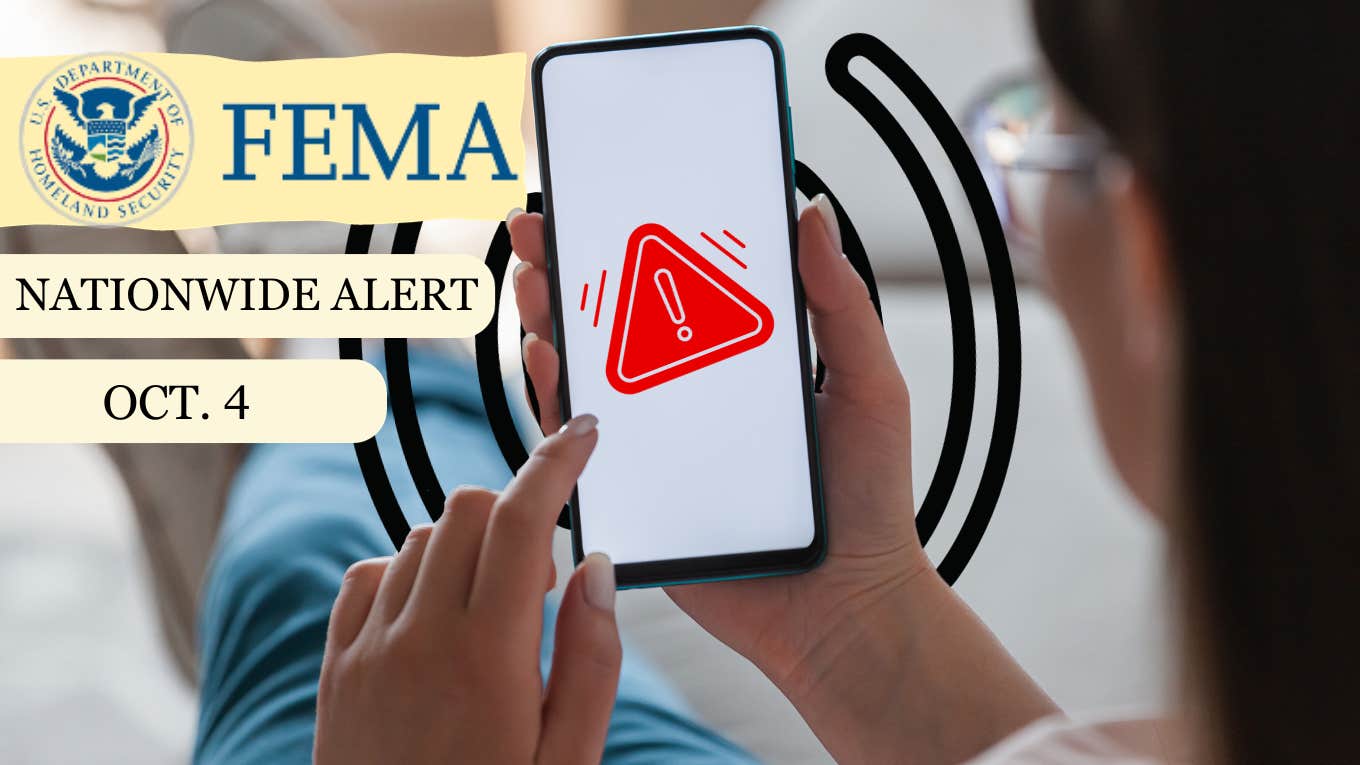FEMA Is Planning To Test Its Alert System On October 4th — Here's Why It's Dangerous
The intention is to focus on public safety, but there are some unintended ramifications.
 FEMA / FEMA.gov; marchenko_family / Canva
FEMA / FEMA.gov; marchenko_family / Canva Since 1979, the Federal Emergency Management Agency (FEMA), a government agency, has been instrumental in responding to the biggest crises in the United States.
On October 4, 2023 at 2:20 pm EST, they plan to work with the Federal Communications Commission (FCC) to conduct a test of the Emergency Alert System (EAS) and the Wireless Emergency Alerts (WEA).
These alerts are intended to let you know of potential danger in your area and give you life-saving information via alerts sent directly to your cell phone.
But FEMA testing their alert system on October 4th may be considered dangerous to some people.
The test will consist of two parts: The WEA alerts will go to all cell phones, and the EAS alerts will go to radios and televisions. FEMA and the FCC are coordinating with wireless providers and other emergency managers to make sure confusion is minimized and public safety is elevated.
The test will help to provide confidence that the system is effective as a means of warning the public when there is an emergency en masse. If, by any chance, the weather prevents the test from proceeding, it will be moved to the following Wednesday, October 11, 2023.
Starting at 2:20 p.m. EST, the test will be sent out from cellular towers and continue for about half an hour. All WEA-compatible wireless phones that are on and within the geographic area of a tower will receive a message reading, "This is a test of the National Wireless Emergency Alert System. No action is needed.”
The radio and television portions of the test will only last one minute and consist of the alerts similar to the ones we are used to seeing when they interrupt our television shows.
Unfortunately, there is one potential danger to the test that is intended to create safety — and it impacts victims of domestic violence.
In a video uploaded to TikTok by an account called "Killer Bee Tactical," a man called out the risk that the alert might create for domestic violence victims who have a hidden phone they can use if they find themselves in danger.
He warned victims who keep a "domestic violence phone" to ensure it is turned off at 2:20 p.m. in the afternoon when the emergency alerts go out. This will prevent the alarm from sounding off and alerting the abuser of the lifeline's existence, a warning that should have been added to FEMA and the FCC's communications advising of the upcoming system test.
Ironically, October is Domestic Violence Awareness Month.
The man also pointed out that it is a perfect time to address the dangers of alert system for people who have experienced domestic violence, since October is designated for awareness.
The intention behind the test is good, but the fallout for victims could be life-threatening, so everyone should be aware and take steps to ensure their safety.
Every 20 minutes, someone experiences domestic violence in the United States. The reasons that people stay in those situations is complicated and not up to us to judge. Some believe that when given other options, remaining in the situation is their best choice.
What we can do for victims of domestic violence is share information, remain objective, and show empathy for something we could never understand without walking a mile in their shoes.
For more information, resources, legal advice, and relevant links, visit the National Domestic Violence Hotline. For anyone struggling from domestic abuse, call the National Domestic Violence Hotline at 1-800-799-SAFE (7233), or, if you’re unable to speak safely, text LOVEIS to 1-866-331-9474.
NyRee Ausler is a writer from Seattle, Washington, and author of seven books. She covers lifestyle, relationships, entertainment, and news, as well as navigating the workplace and social issues.

